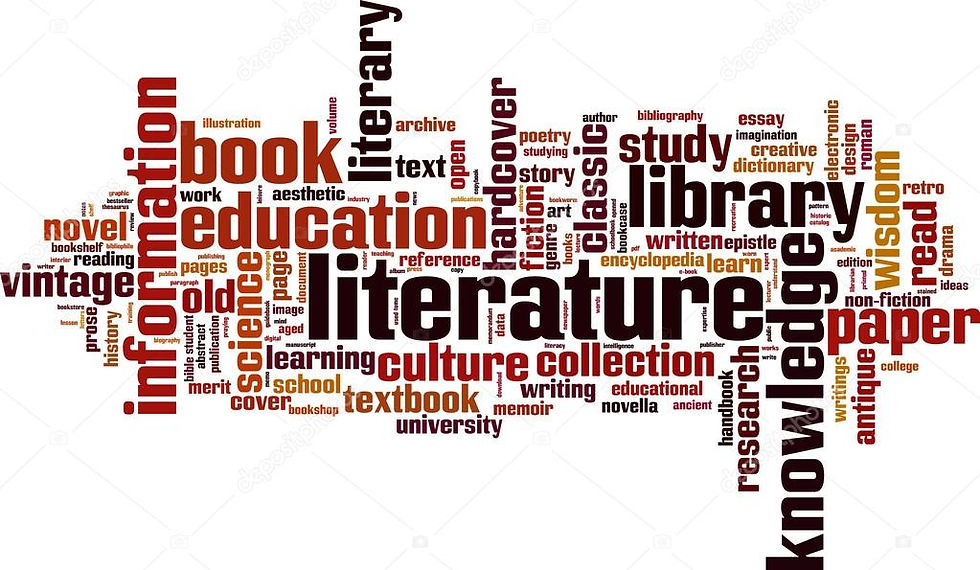Literature: Its Timeless Beauty
- lingayasvidyapeeth60
- Mar 9, 2024
- 3 min read

Literature has a special ability to enthrall, inspire, and transcend boundaries; it is frequently referred to as the mirror of society. Throughout history, literature has provided many people with amusement, knowledge, and comfort in a variety of forms. With a BA in English Hons. Courses, you lay the foundation for a promising career in the vast world of literature and language.
Varied Modes of Communication:
From the epic stories of ancient civilizations to the contemporary novels, poems, and plays that influence our perception of the world today, literature takes many forms. Every genre has a certain allure that enables authors to craft complex stories that speak to the universal human condition.
Language's Power:
The power of words, a powerful instrument that may arouse feelings, alter perceptions, and spark the imagination, is at the core of literature. Through their skill, writers conjure up evocative scenes, develop nuanced characters, and express thought-provoking concepts that endure. Literary works have a profound effect that lasts long after they are written, influencing successive generations and forming cultural identities.
Learn about : Soft Skills in Career Development
Classic Pieces:
Some literary works are deemed "classics" because they endure the test of time. Classic works of literature like Homer's epics, Dickens' novels, and Shakespeare's plays are still relevant today. No matter the time period, readers may relate to the universal themes of love, betrayal, power, and the human condition that are tackled in these works.

Refuge and Discovery:
Reading literature gives readers a way to escape reality by letting them explore other universes, times, and viewpoints. Fiction may take readers to new and uncharted places, be it the fantastical worlds of fantasy books or the historical settings portrayed in historical fiction. Readers can escape reality and go on exciting adventures or learn about foreign cultures by turning to the pages of a book.
Artistic Tapestry:
Literature creates a complex cultural tapestry that goes beyond personal enjoyment. It serves as a record of human history and reflects conventional standards, values, and goals. Literature serves as a forum for cross-cultural discussion and reflects the evolution of societies via tales from antiquity to the present.
A Force for Transformation:
Throughout history, literature has acted as a catalyst for social and political transformation. Classic novels like Margaret Atwood's "The Handmaid's Tale" and George Orwell's "1984" have acted as warning tales, provoking readers to consider the ramifications of unbridled authority. The written word possesses the power to subvert accepted wisdom, incite revolutions, and ignite movements that influence the path of history.
Literature in the Digital Age:
The internet era has given literature new platforms for expression. Blogs, e-books, and internet platforms present writers with never-before-seen chances to connect with readers around the world. But the fundamental quality of literature has never changed: the power of words to link people, arouse emotions, and transmit ideas.
The Lasting Traitor:
With its long history, literature serves as a reminder of the universality of human experience. Literature remains a constant, a source of beauty in language and narrative, even as technology develops and the world changes quickly. By acting as a link between the past, present, and future, it promotes a feeling of continuity and human connection.
In summary, literature's everlasting beauty stems from its capacity to cross cultural and chronological barriers. Literature, from the age-old scrolls to the modern digital pages, continues to be a potent force that enlivens our lives, challenges our intellects, and weaves us all together into the enormous fabric of human life.
For those passionate about literature, Lingaya's Vidyapeeth is the Top Colleges in Delhi NCR offering BA and MA English Programs. With a comprehensive curriculum and experienced faculty, students delve deep into the world of literature, honing their analytical and communication skills.







Comments